This morning, the Ministry of Foreign Affairs organized an international conference with the theme "50 years of national reunification: The constructive role of diplomacy in history and present".
Speaking at the conference, President Luong Cuong stated that every country and nation in the world, whether big or small, generally goes through turning points, historical crossroads that determine their destiny and development path.
For Vietnam, the victory of April 30, 1975 was an extremely important event in the nation's history. From then on, Vietnam was completely unified, the country was reunited; the Vietnamese people entered a new historical era - the era of independence, unity, and the whole country moving towards socialism.
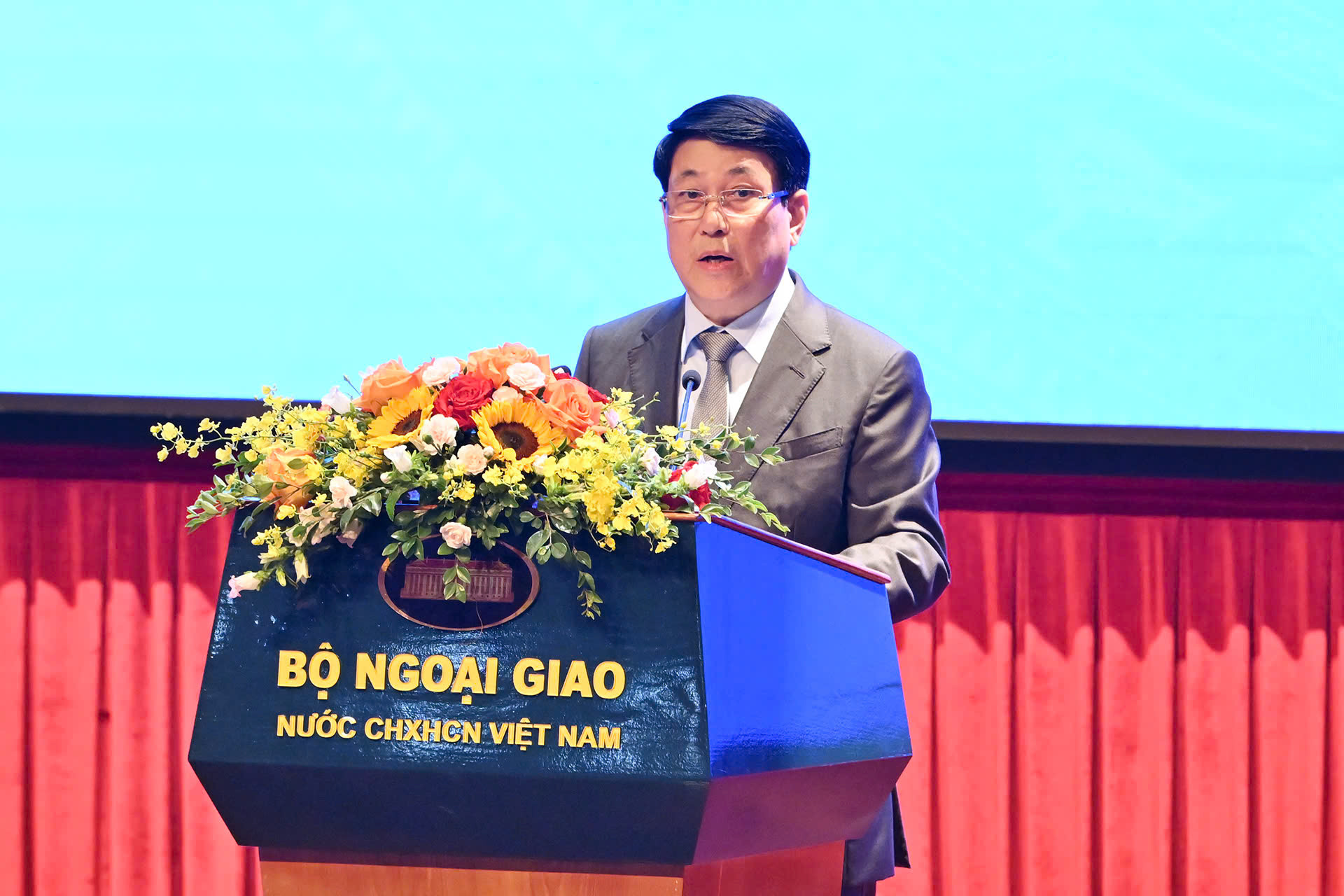
President Luong Cuong speaks at the conference. Photo: PH
The President said that in that historic victory, there was a great contribution from Vietnamese diplomacy. Half a century has passed, but the historical significance and profound lessons from the victory on April 30, 1975 for Vietnamese diplomacy in creating peace, protecting and building the Fatherland still remain valuable.
The President said that looking back at the history of the struggle for national liberation, independence and reunification, we become more aware of the very important role of diplomacy.
The President analyzed that diplomacy has mobilized great material and spiritual support from socialist countries and progressive people around the world, creating an unprecedentedly large international movement to support the just struggle of the Vietnamese people.
The President said that in the history of the 20th century, there were few national struggles that gathered such widespread and strong support both at home and abroad as the Vietnamese people.
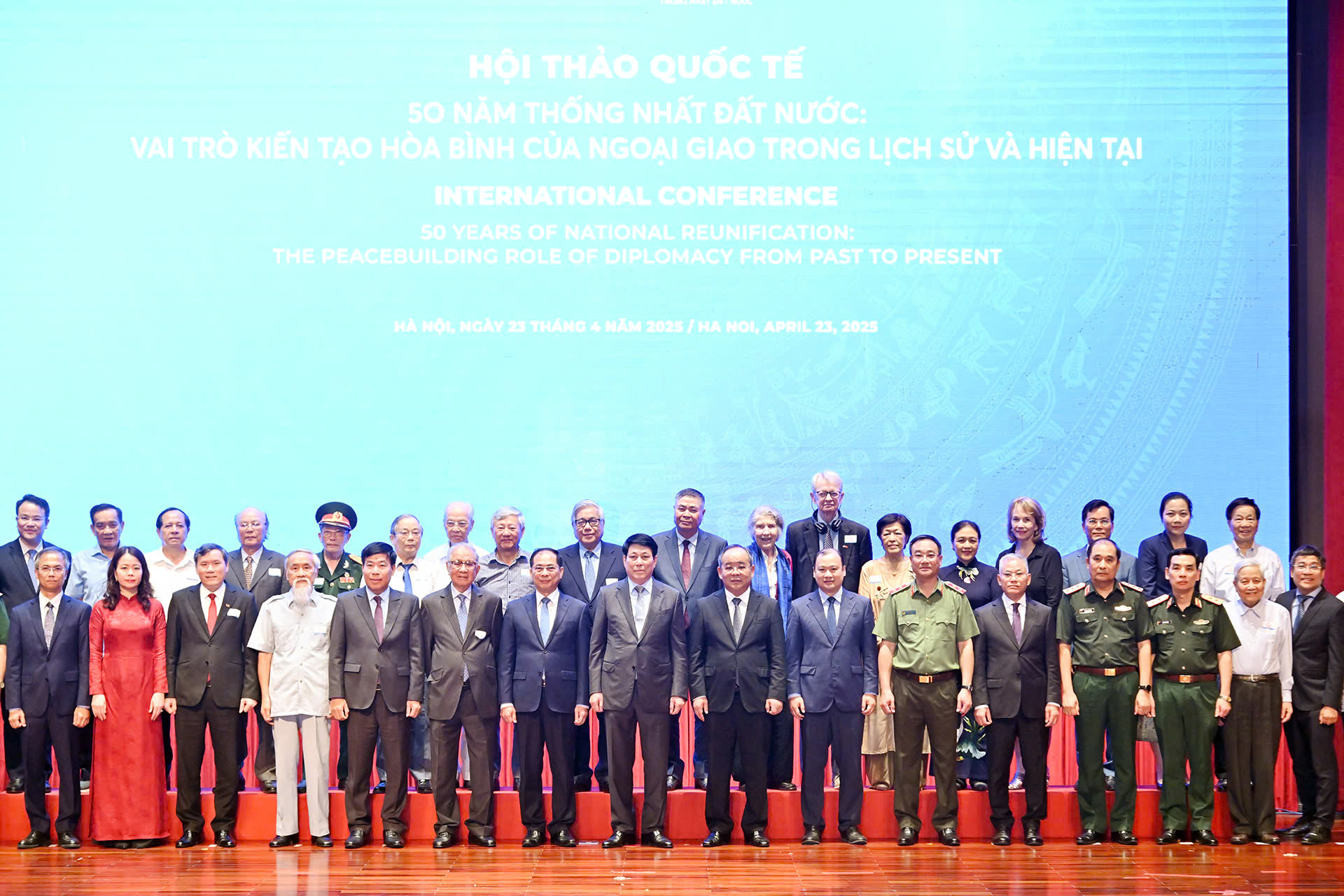
President and delegates attending the conference. Photo: PH
Diplomacy coordinated smoothly and closely with the military and political fronts, opening up a situation of "fighting and negotiating at the same time", thereby achieving victory step by step, creating the premise to bring the cause of fighting to liberate the South and unify the country to complete victory.
The fierce intellectual battles at the negotiating table of the Geneva Conference in 1954 and the Paris Conference (from 1968-1973) between Vietnamese politicians and diplomats, typically diplomats Pham Van Dong, Le Duc Tho, Nguyen Thi Binh, Nguyen Duy Trinh, Xuan Thuy, etc., have gone down in history, affirming Vietnam's bravery and intelligence, making the opponent respect them.
Diplomacy has made an important contribution to national reconstruction, successfully implementing foreign policy during the Doi Moi period, opening up a favorable foreign situation for national construction and defense.
When the country was still engulfed in the smoke of bombs and bullets, President Ho Chi Minh affirmed: "We are ready to roll out the red carpet and scatter flowers for the US to withdraw."
Vietnam's humane treatment of American prisoners of war, prisoner exchanges during the implementation of the Paris Agreement, creating favorable conditions for the US to evacuate citizens and military personnel in late April 1975, and cooperation in searching for missing Americans... were goodwill gestures, creating the premise for the two sides to resume cooperation.
Later, American veterans who fought in Vietnam such as John McCain and John Kerry were the ones who were active and proactive in promoting normalization and developing relations with Vietnam.
The profound timeliness and topicality of the “Vietnam story” remains intact.
Reviewing the achievements of 40 years of Renovation, the President noted that in peacetime, foreign affairs take the lead in creating peace, protecting the Fatherland "early and from afar", expanding the country's development space and strengthening close friendship, equal cooperation and mutual benefit.
The President affirmed that the historic victory on April 30, 1975 and the strong revival and development of Vietnam are typical examples of love for peace; closing the past and looking towards the future.
The President expressed that, despite the passage of time, the profound timeliness and topicality of the “Vietnam story” remains intact, shining with the noble values of the journey to seek sustainable peace, dialogue, healing the wounds of war, national reconciliation, reconstruction and development.
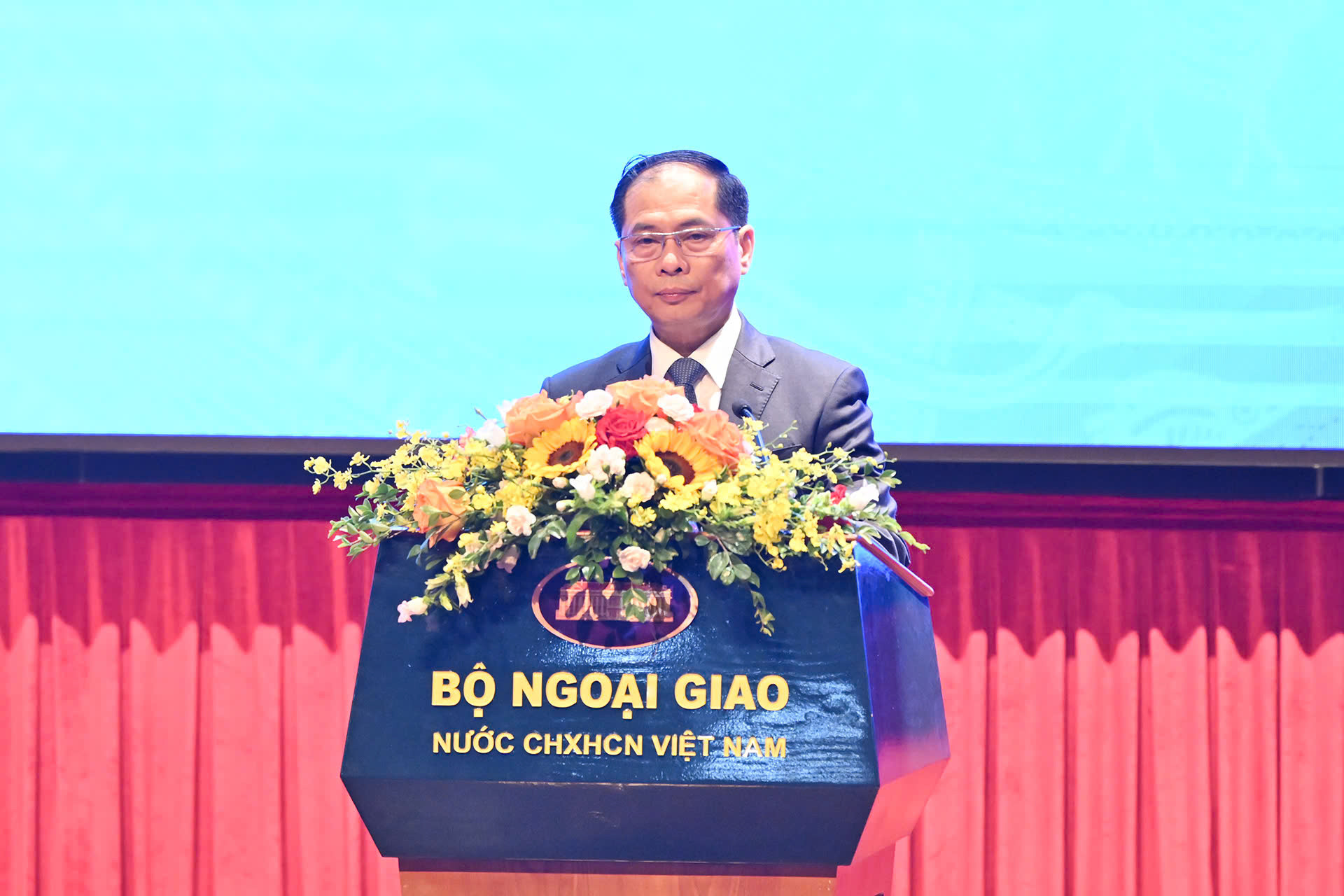
Deputy Prime Minister and Minister of Foreign Affairs Bui Thanh Son speaks. Photo: PH
Deputy Prime Minister and Minister of Foreign Affairs Bui Thanh Son said that today, facing the great changes of the times, Vietnamese diplomacy is undergoing fundamental innovations, entering a new era, an era of national growth.
The country's new position and strength allow Vietnam to have a new approach in the new situation. From a position of a receiving country to a contributing country, from a country that follows behind to a country that is rising, with the ability and conditions to participate more deeply and responsibly in solving common problems of the world.
The Deputy Prime Minister affirmed that, from the lessons learned in the struggle for national reunification, Vietnam will actively participate in building and protecting a fair and equal international order based on international law, enhancing Vietnam's contribution to ensuring security and creating peace in the world.
Vietnamnet.vn
Source: https://vietnamnet.vn/chu-tich-nuoc-viet-nam-la-hinh-mau-cua-khep-lai-qua-khu-huong-toi-tuong-lai-2394173.html


![[Photo] Prime Minister Pham Minh Chinh meets to prepare for negotiations with the United States](https://vphoto.vietnam.vn/thumb/1200x675/vietnam/resource/IMAGE/2025/4/29/76e3106b9a114f37a2905bc41df55f48)
![[Photo] Ho Chi Minh City: People are willing to stay up all night to watch the parade](https://vphoto.vietnam.vn/thumb/1200x675/vietnam/resource/IMAGE/2025/4/29/cf71fdfd4d814022ac35377a7f34dfd1)
![[Photo] Hanoi is brightly decorated to celebrate the 50th anniversary of National Reunification Day](https://vphoto.vietnam.vn/thumb/1200x675/vietnam/resource/IMAGE/2025/4/29/ad75eff9e4e14ac2af4e6636843a6b53)
![[Photo] General Secretary attends special art program "Spring of Unification"](https://vphoto.vietnam.vn/thumb/1200x675/vietnam/resource/IMAGE/2025/4/29/e90c8902ae5c4958b79e26b20700a980)
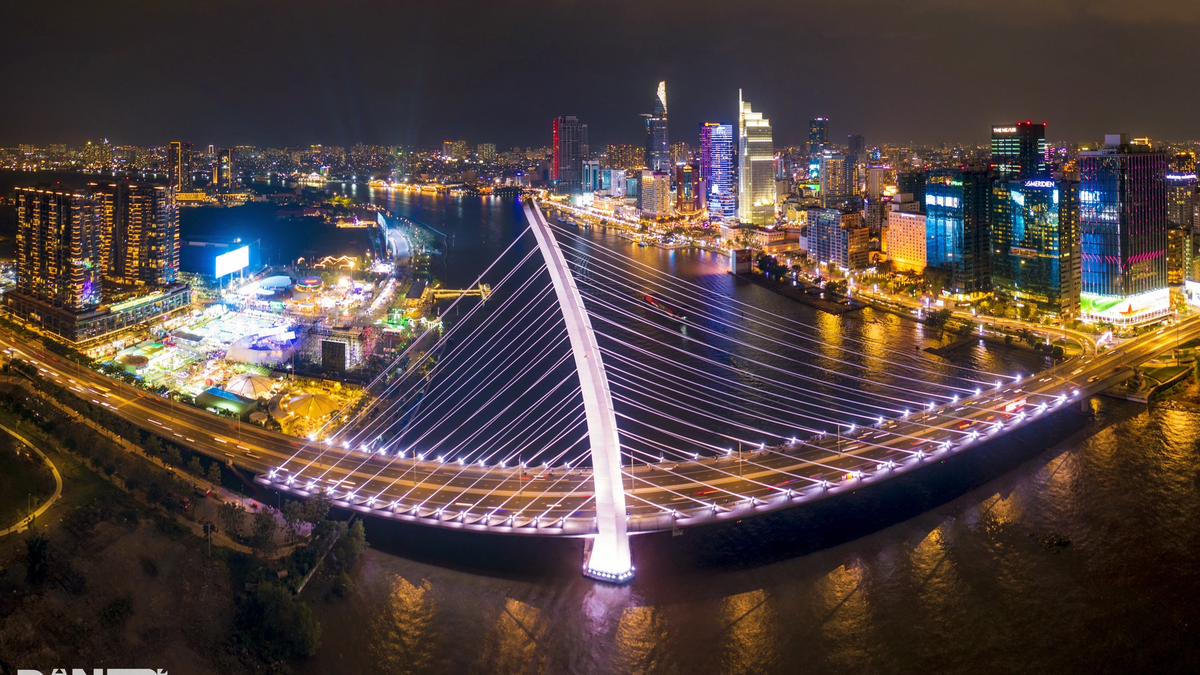
![[Photo] Nghe An: Bustling atmosphere celebrating the 50th anniversary of Southern Liberation and National Reunification Day](https://vphoto.vietnam.vn/thumb/1200x675/vietnam/resource/IMAGE/2025/4/29/64f2981da7bb4b0eb1940aa64034e6a7)
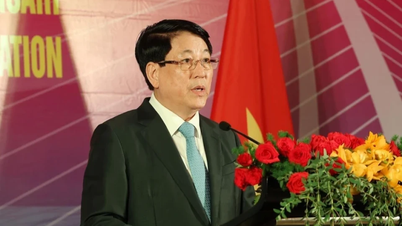

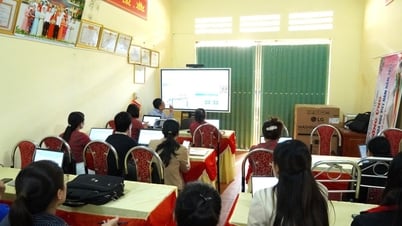

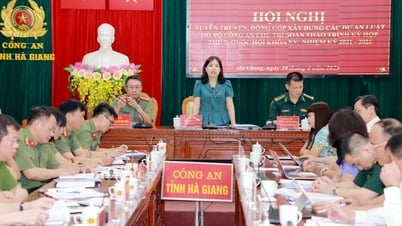
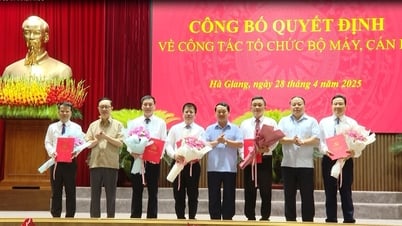
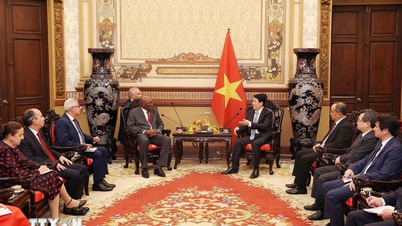

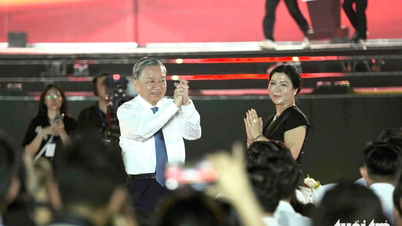
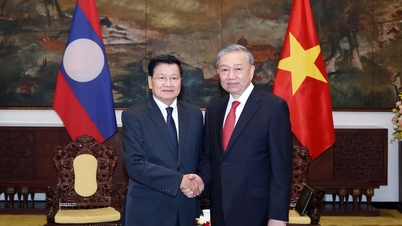

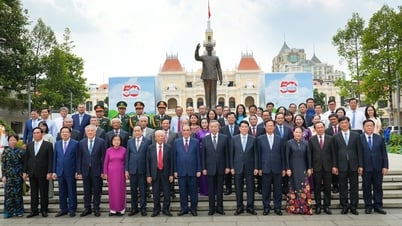







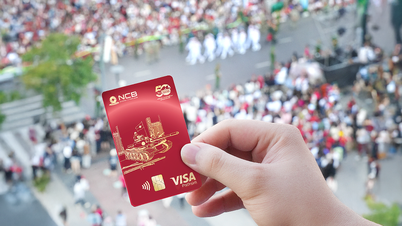
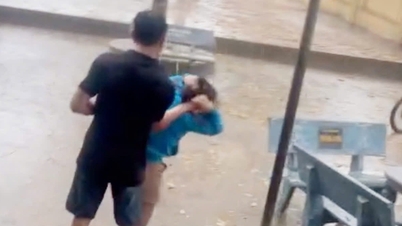


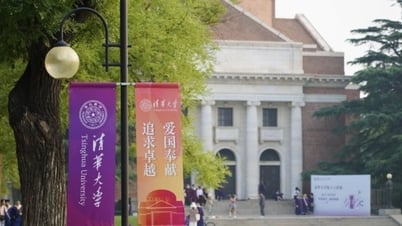
![[Photo] People choose places to watch the parade from noon on April 29](https://vphoto.vietnam.vn/thumb/1200x675/vietnam/resource/IMAGE/2025/4/29/3f7525d7a7154d839ff9154db2ecbb1b)













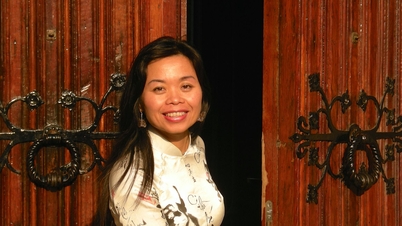



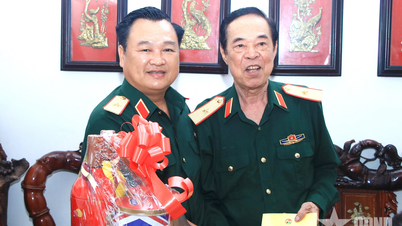
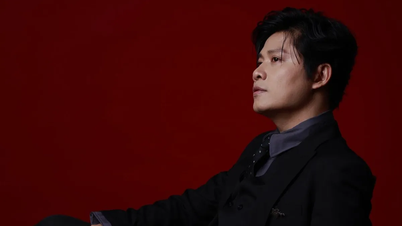












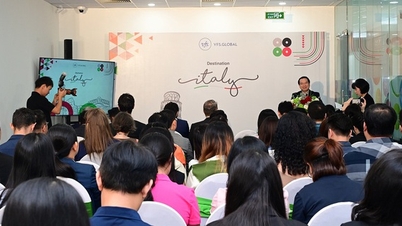

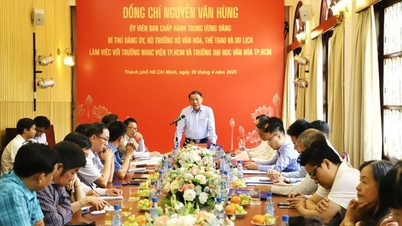
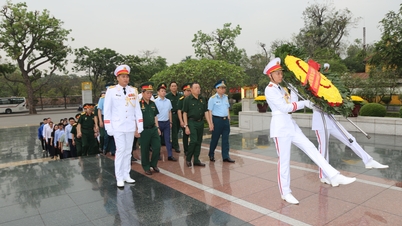



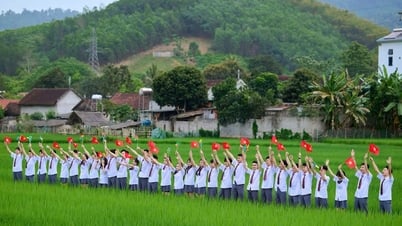
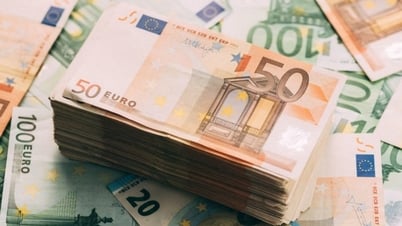
















Comment (0)